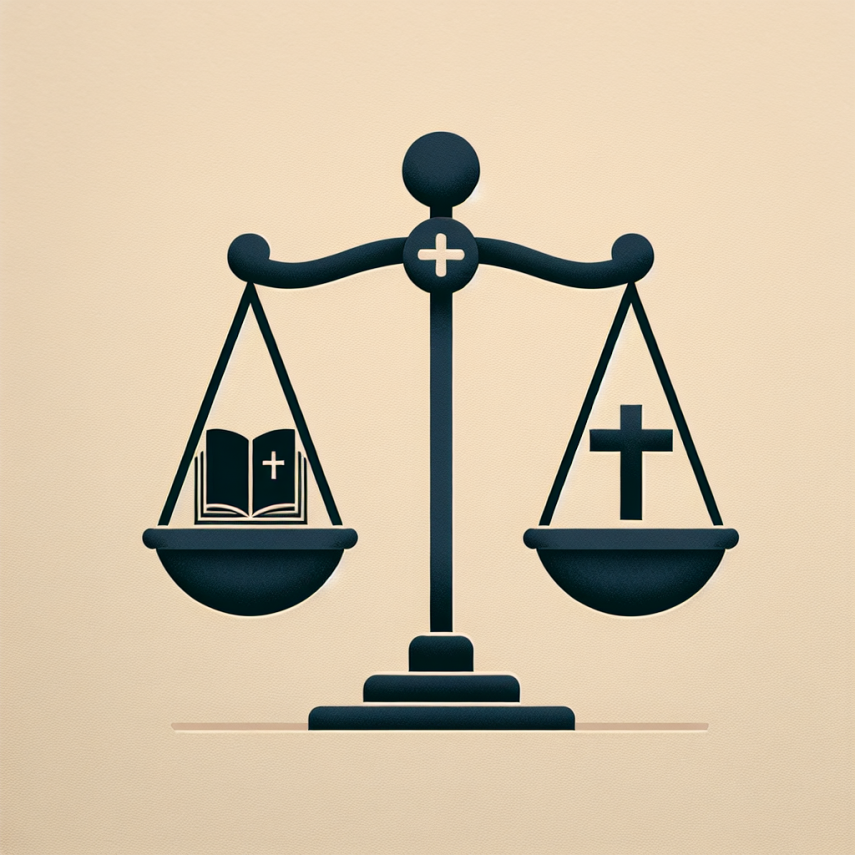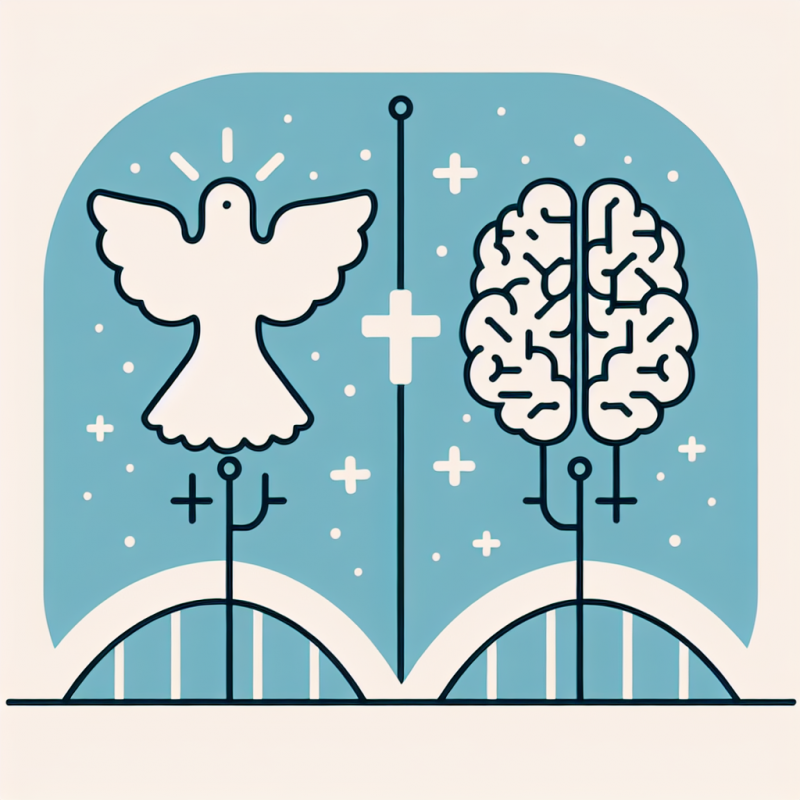**The Theological Balance Between Faith and Reason**
Throughout centuries, the interplay between faith and reason has been a central theme for scholars, theologians, and believers alike. Far from being opposites, faith and reason form a profound partnership that allows humanity to explore both the seen and unseen aspects of existence. This intricate relationship invites believers to view the world not through isolated lenses but as a harmonious tapestry woven with logic and divine truth.
### Faith and Reason: Allies, Not Enemies
From a theological perspective, faith and reason are often perceived as being at odds—especially when weighed against contemporary societal narratives. Yet when closely examined, they emerge as two sides of the same coin. Faith provides the foundational belief in God’s revelations and promises, while reason equips us with tools to interpret, analyze, and apply these truths in meaningful ways. This synergy reflects our unique design as beings created in the image of God, endowed with both a capacity for spiritual connection and a rational mind.
### Grounding Faith in Rational Understanding
Christian faith requires more than blind acceptance; it involves the engagement of the intellect to understand and articulate what is believed. For example, the apostle Peter instructs believers to always be prepared to give a reason for the hope they have (1 Peter 3:15). Reason allows this hope to be explained and shared with clarity, offering the skeptic and seeker alike an entry point into a deeper exploration of God’s truth. Logical inquiry, then, is not contrary to faith but rather an essential part of a vibrant spiritual life.
** **
**
### Biblical Foundations for the Union of Faith and Reason
Scripture itself reflects the interplay of faith and reason, repeatedly inviting the believer to both trust in God and thoughtfully consider His works and ways. Isaiah 1:18 declares, “Come now, let us reason together,” emphasizing God’s desire for an engaged and reflective faith. Likewise, the apostle Paul, in his letter to the Romans, builds a logical case for theological truth, intertwining revelation with reasoned argumentation.
Furthermore, the Book of Proverbs celebrates wisdom—rooted in both understanding and reverence for God—as the compass for navigating life. This biblical endorsement of reason strengthens the notion that intellectual rigor and spiritual devotion are not mutually exclusive but complementary.
**
**
### Bridging the Gap in Contemporary Times
In today’s world, where science and philosophy often stand as gatekeepers of truth, Christians have an opportunity to present faith informed by reason with conviction and gentleness. Engaging in productive dialogues with those who view faith as irrational or outdated requires patience, wisdom, and reliance on the Holy Spirit.
Faith and reason, when rightly united, prove especially valuable in apologetics. Addressing questions about morality, the origins of the universe, and human purpose often involves a careful balance between logical argumentation and spiritual insight. This approach demonstrates that belief in God is a rational choice, supported not only by revelation but by evidence found in nature, history, and personal experience.
** **
**
### The Practical Implications of Unified Thought
Living with faith and reason in harmony impacts more than just intellectual pursuits; it transforms how believers navigate their lives. It equips them to make ethically sound decisions, approach challenges with discernment, and remain steadfast in the face of doubt. This holistic mindset fosters a deep sense of purpose that transcends temporal understanding, keeping the believer anchored in the eternal hope of God’s promises.
Christians are called to let their light shine in a world often shrouded in uncertainty. This light is magnified when the radiant truth of the gospel is coupled with the clarity brought by thoughtful analysis and reasoning. The partnership of faith and reason holds the power to illuminate hearts and minds, demonstrating the relevance and transformative power of God’s Word in every area of life.
** **
**
### Conclusion
The relationship between faith and reason is not a battleground but rather fertile soil where both intellect and spirit can thrive. When held together, faith and reason empower the believer to explore and explain the depths of God’s truth while remaining grounded in His wisdom. By embracing this union, we honor God as the source of all understanding, recognizing Him as both the Creator of the universe and the divine Architect of our faith journey.




This was a helpful read. Looking forward to more content like this!
Thank you for reading! I wrote this article to share my thoughts and insights. I’d love to hear your feedback and discuss further in the comments!